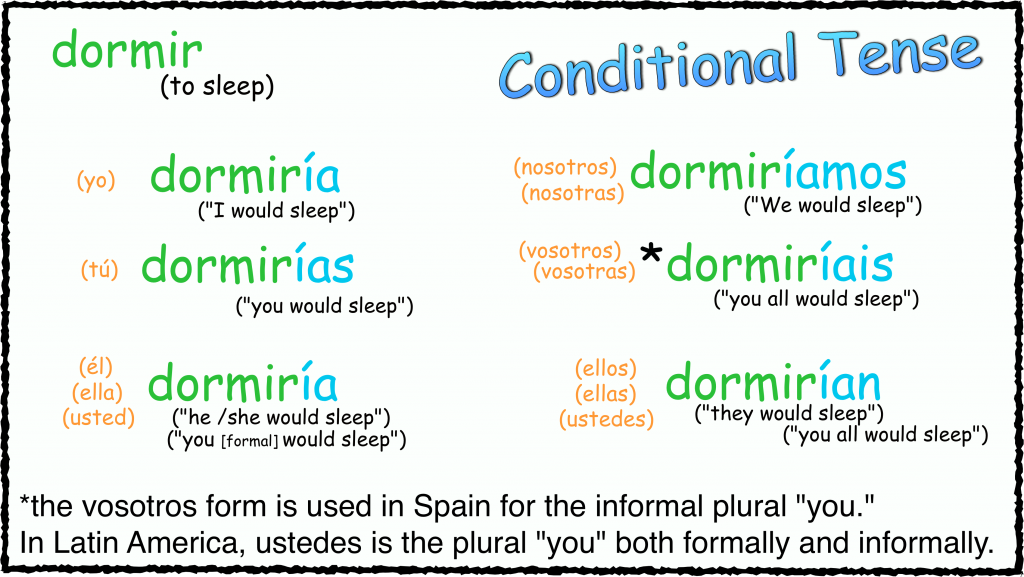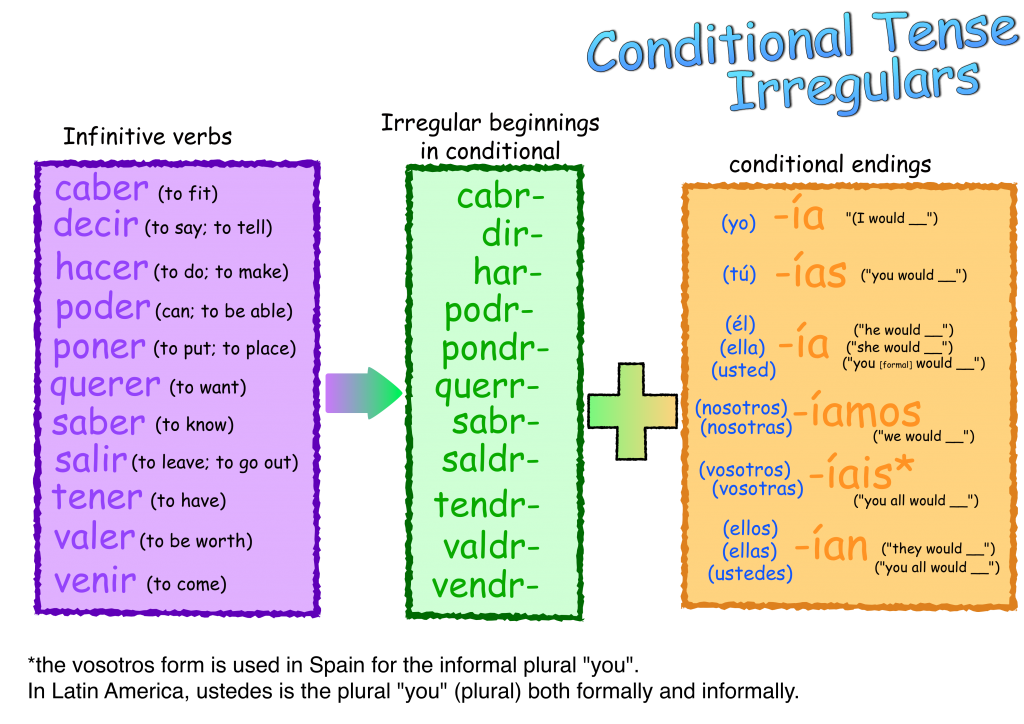Hola. In this video lesson, we’ll be tackling one of my favorites: the conditional. The conditional is generally used to mean “would”. While some refer to it as a tense, it is really a mood. It is often used when talking about abstract concepts, unlikely things, or the impossible. It’s formed in a similar way as the future tense. In this video we’ll be going over the regular verbs as well as the irregular verbs in this tense.
Enjoy!
Please leave any comments, questions or your own answer to the last question below! 🙂
Más ayuda: (click pictures for larger graphics)
Regular verbs:

Irregular verbs:


10 Responses
I really love the lesson, though. Learned a lot.
Best wishes
Keep them coming Senor Jordan. As a new student of Spanish I love looking learning from your material!
It should be «los enfermos quieren comerSE a las personas» y «no se cansan de comérSElas».
«Es bueno tener un lugar que puedAs defender con entradas y salidas»What exactly are you trying to say there?
Really like what you are doing, great source to learn quickly and review.
Si yo tuviera un millon dolores, yo encontraria Atlantis.
bueno.como se puede mejorar escuchar?
wow i love your vids 🙂 please do more !!!!!
very neat
Really love your videos!! Would definitely want to see more LOL !!